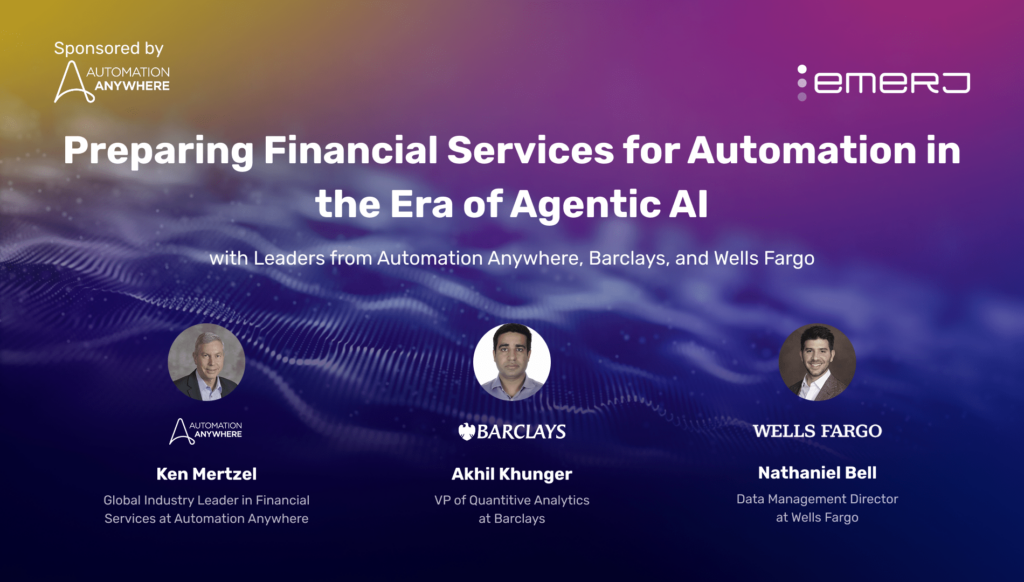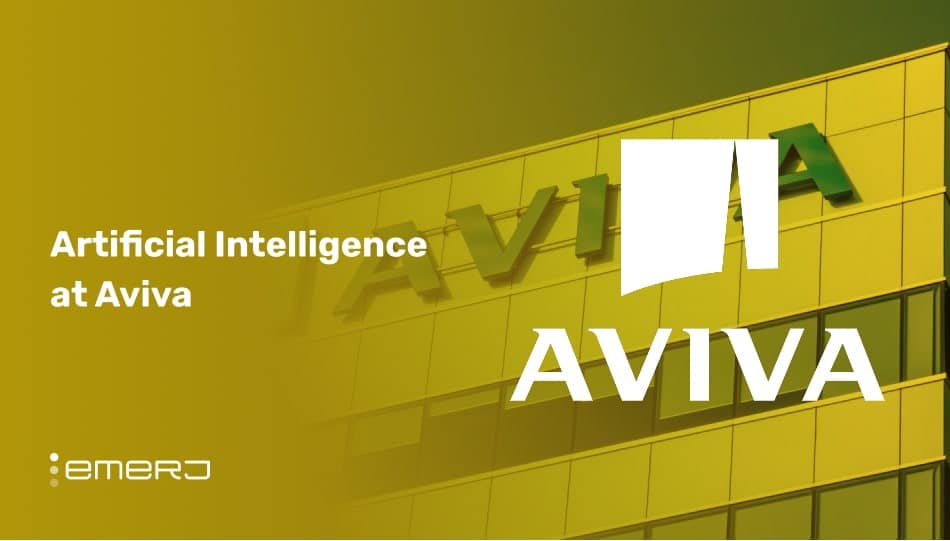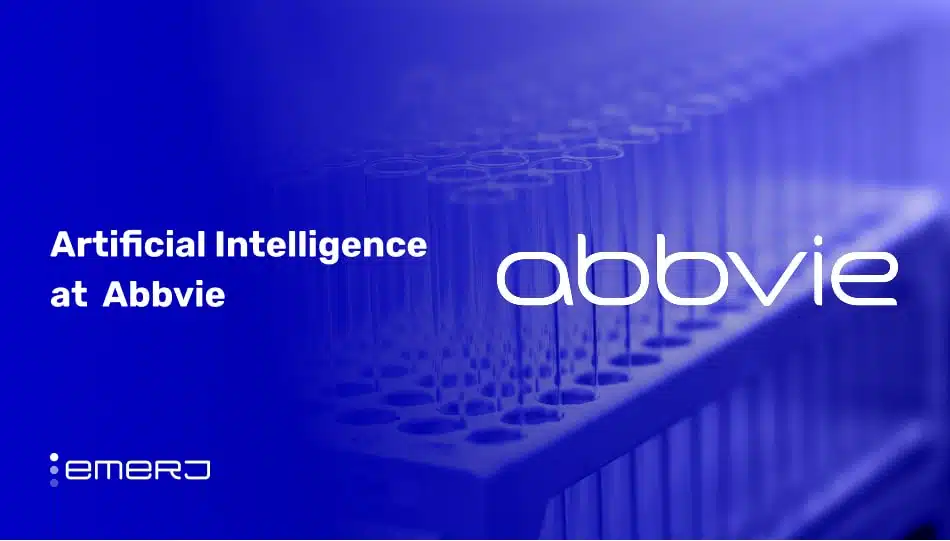This article was written by Sudhir Jha (Senior Vice President & Global Head of Product Management and Strategy), and was edited and created in partnership with Infosys. For more information about content and promotional partnerships with Emerj, visit the Emerj Partnerships page.
This article is based on insights from Infosys’ recent Leadership in the Age of AI research report. View the report itself to learn more, and to read about the research methods used.
As businesses around the world continue to produce new use cases for artificial intelligence (AI), the technology’s ability to foster or eliminate a level playing field creates a growing concern about its overall power and influence on the future workforce.
While most agree AI holds vast potential to unlock discoveries we haven’t yet conceived, for many, AI strikes concerns over job displacement, economic instability and skills shortages. Elon Musk has been vocal on his perspective of AI, illustrating worst-case scenarios that pin humans versus robots in a battle for jobs and control of human destiny.
Yet despite passionate concerns and potential implications of AI, the technology holds enormous potential for human empowerment and gives us the tools necessary to automate redundant tasks, spot patterns within new and existing data and uncover important insights that have the potential make our lives better (in medicine, in finance, and everyday life).
AI’s Return on Investment
According to a recent global survey on AI*, a majority of organizations began deploying AI to automate or improve routine or inefficient processes. In fact, 66 percent of those surveyed are leveraging AI technologies primarily for business process automation, often viewed as a good starting point as it can deliver quick improvements. While AI is still in its infancy, 9 out of 10 C-level executives reported tangible benefits from the artificial intelligence applications in their companies.
In addition to security and privacy issues, respondents also reported that because their organization’s data is not ready from a support standpoint, they are unable to deploy the AI technologies they want. As a result, expect to see continued investment in data management as companies aggressively adopt AI technologies.
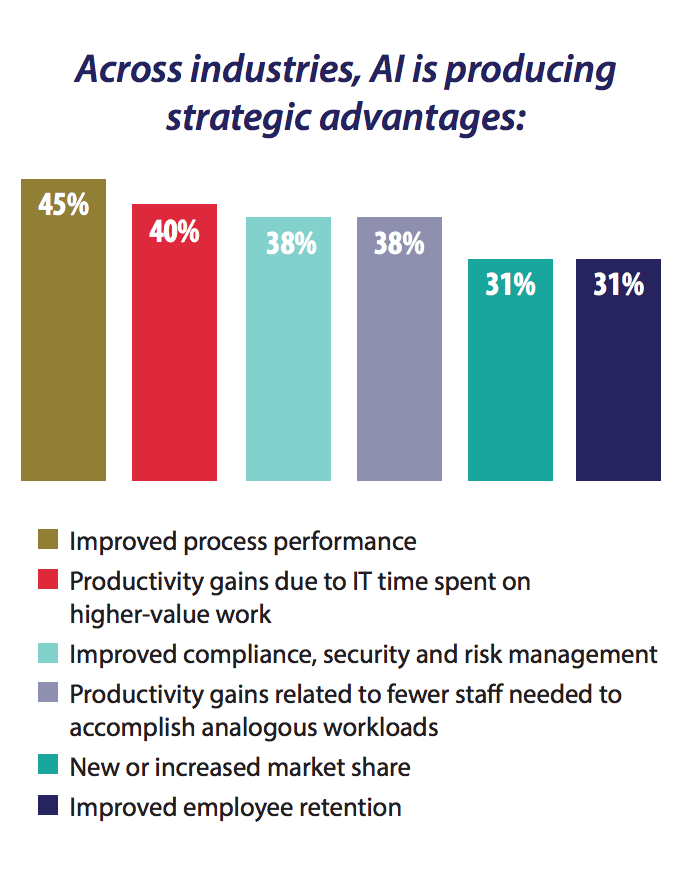
Integrating AI into the Workforce
With nearly half of all respondents reporting that their organization’s AI deployment is greatly outpacing the accuracy and productivity of comparable human activity, it is clear that AI is already matching human capabilities in certain areas.
And business leaders are well aware of AI’s potential ethical and human dilemmas, as 69 percent of C-level executives reported that their employees are concerned that AI technologies will replace them. To fully integrate employees into a successful AI deployment, organizations will need to leverage AI to augment existing human skills and make employees better at their work as well as focus on employee training to help them develop adaptable skills for the future.
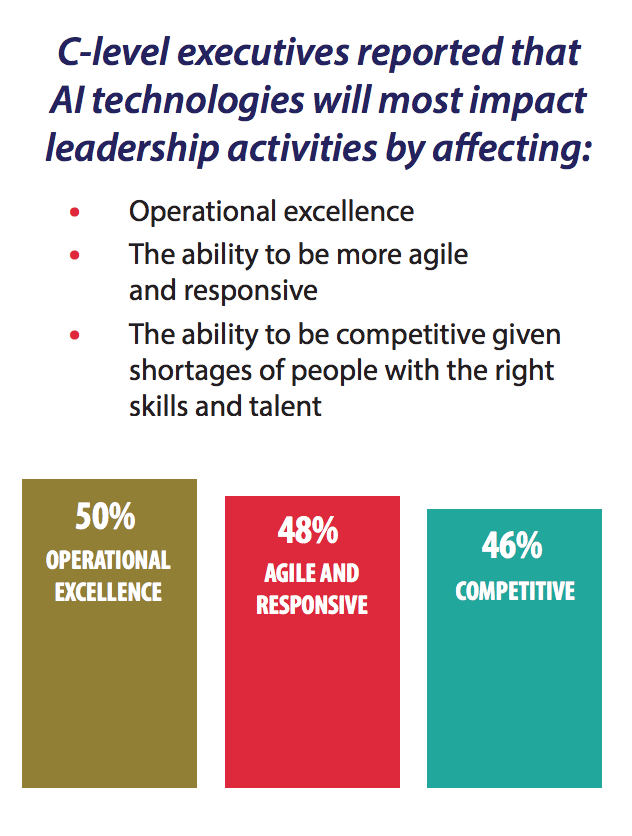
Leaders Embracing Greater Presence of AI
As AI is integrated into more operations within organizations, the fundamental components of leadership must be refined across several levels, including overall strategy, customer experience and leveraging technology and human capital. Recognizing this shift in leadership, four out of five C-level executives surveyed said that their future business strategy will be informed through opportunities made available with AI technology.
Tellingly, 80 percent of C-level executives were also confident that their organization’s executive team has the ability to adapt their leadership skills as AI technologies are adopted within their business. Along with a belief in leadership strength, 70 percent of all C-level executives surveyed strongly agreed that AI will benefit employees at all levels of their organization.
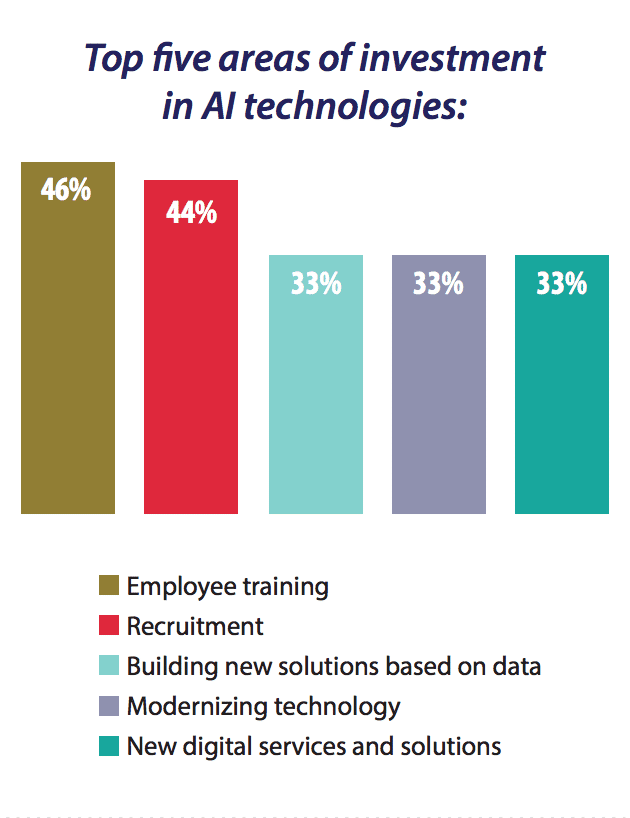
While many leaders take a positive view, the data also revealed an area of concern with AI among business leaders in losing transparency into their business due to the technology’s ability to run autonomously. As a result, 52 percent of the CEOs surveyed said they are fearful that leadership will have less transparency into their business due to AI and automation.
Concluding Thoughts
Some organizations are already experiencing the benefits of AI as it becomes mainstream in business, and there is a fear those who are not already experimenting with AI will be left behind (given a long enough time horizon, this will likely be the case). In order to remain competitive, businesses investing in AI should also invest in their employees. And as AI increases in scale and drives further change, businesses that embrace training and re-skilling current employees will realize tangible benefits.
Transparency about AI initiatives and their benefits can also improve AI effectiveness: Business leaders can uncover new opportunities and head off potential risks before they cause serious problems or harm to the company’s customers, employees or reputation.
Because AI will bring continuous change, training cannot be a one-time initiative. The most successful organizations will be those that adopt a culture of lifelong learning and facilitate opportunities for staff to continuously develop new skills. Business leaders will also need to evolve their skills to gain a deeper understanding of the technologies that are driving their business forward in the years to come.
*In the Infosys report, “artificial intelligence” is defined as “software technologies that make a computer or robot perform equal to or better than normal human computational ability in accuracy, capacity and speed. Examples can include Natural Language Processing, Knowledge Representation, Automated Reasoning, Machine Learning, Robotics, Rational Agent and Chatbots.
Header image credit: Infosys






